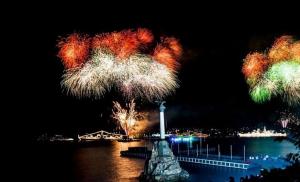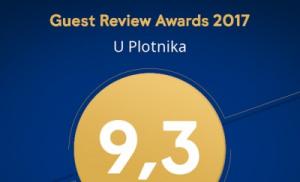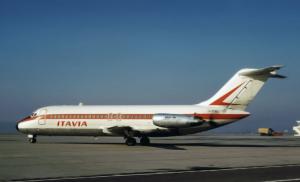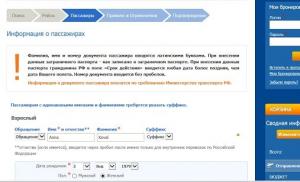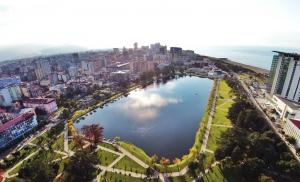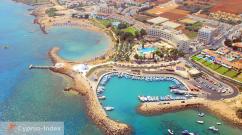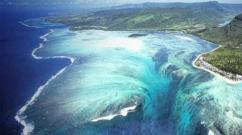Why is England called Foggy Albion? Why is England called “England”, “Great Britain”, “Albion” and “Workshop of the World” The former is in Foggy Albion.
This poetic phrase is the second name for England. The climate in Great Britain is humid and damp, and the country is known for its fog due to geographical location. There are several versions of the origin of this name, and some British scientists even claim that this phrase has nothing to do with the thick English fogs.
So, why is this country called “Foggy Albion?”
Version one. London smog
Some researchers believe that this name refers not to thick natural fog, but to London smog. Due to the rapid flourishing of British industry, London and other large industrial cities in Great Britain were shrouded in a dense curtain of smog. The British called it "pea soup". The fact is that industrial enterprises in those days ran on coal, and dark, acrid smoke escaped from the factory chimneys.
By the middle of the 20th century, the air in large industrial centers had become completely polluted - car exhaust was added to the smoke from chimneys. In the end, the British could not stand it, and in 1956 parliament passed a law that prohibited burning coal in enterprises in large cities. Only after this were London and other UK cities able to say goodbye to thick industrial smog. The air in them became cleaner.
Version two. Dover Cliffs.
The ancient Romans, sailing to England, first of all saw the huge white cliffs of Dover. This is where the name of England came from – Albus, which means “white” in Latin. These rocks look like huge icebergs, they can be seen from the farthest distance.
Dover Castle, which was built 2,000 years ago, sits on top of one of these snow-white cliffs. He is also seen by sailors sailing towards England. The castle was built as a defensive structure, because the British had to defend their independence with arms in hand, repelling constant invasions from the European continent. Therefore, Dover Castle, which is located on the shore of the strait between France and Great Britain, is also called the “key to England.”
Version three. English fogs
"Albion" is a word of Celtic origin. This name for England was known to the ancient Greeks. This is what the ancient Greek scientist Ptolemy calls this country in his works. Well, the adjective “foggy” is associated with the thick sea fog that often shrouds the lowlands of the island of Britain and the cities of England.
The infamous fog that descended on London from December 3 to 7, 1962. In those days, 137 people died and more than 1000 were hospitalized. 5,000 double-decker red buses were not running in London - they were removed from routes after two buses collided and 13 people were injured. Cars drove blindly in the fog and several dozen people were run over. When the fog cleared, Londoners experienced great relief.
We have given here three versions of the origin of the name “Foggy Albion”. It is not known which of them is the most reliable. But this phrase is beautiful, poetic and mysterious. It creates a vivid image of this beautiful country, whose past and present are full of mysteries.
"Albion" comes from a Celtic root meaning "white". Somewhat later, the Romans began to call England “albus” (also in “white”), because, sailing to its shores, they saw the huge white cliffs of Dover, whose height reaches 107 meters. The rocks have a high chalk content, which is why they resemble large snow-white icebergs.
At the top of one of the rocks stands the ancient Dover Castle, whose history goes back more than 2000 years. Its construction was dictated by the need to repel numerous invasions from continental Europe. As a result, Dover became the most powerful and fortified of all European fortresses. Situated on the shore of the strait separating Great Britain and France, the castle has long been considered the “key to England.”
English fogs
The second, much more common version of how England got “Foggy Albion” looks more banal. It is directly related to the famous English fogs. Its adherents believe that there is no need to look for complex explanations for this name - it literally reflects the climate characteristic of the country. Travelers heading to England need to be prepared for drizzling rain, fog and winds. Largest quantity precipitation falls here in September. True, weather forecasters claim that, in fact, there is no more fog in England than in Russia or continental Europe.
Smog over London
There is also a third version, according to which the name “Foggy Albion” does not mean natural fog, but industrial smog. There was a time when it shrouded London and other large industrial cities in Great Britain like a thick curtain. The British called it "pea soup". Initially, smog arose because factory stoves were heated with coal. In the mid-twentieth century, car exhaust was added to the smoke from chimneys. As a result, in 1956 the English Parliament passed a law banning the burning of coal in enterprises in large cities. Thus, we finally managed to get rid of the thick industrial smog. Today, London's air is considered one of the cleanest among many cities in the world.
Whichever version is the most reliable, one cannot help but admit that the name “foggy Albion” sounds beautiful and poetic, creating a visible image of this mysterious country.
Probably everyone has heard the words “mysterious Foggy Albion” at least once in their life. Merlin and the Knights of the Round Table immediately come to mind...
That's right, all this is from the same opera. Or rather, from the same country. After all, it is England that is Foggy Albion. And this is not made up fabulous name, and already historically assigned to the British Isles
So, let's see why England is called Foggy Albion.
Albion
Firstly, what does Albion mean? This name has stuck to Britain since ancient times. But why? There are several versions on this matter.
According to one of them, the word “albion” comes from the Roman albus, which translates as “white”. When the ancient Roman conquerors sailed to the shores of the British Isles, snow-white cliffs emerged from the fog. That's why they called the island "Albion".
According to another version, “albion” is a word of Celtic origin, meaning mountains. Like, for example, the Alps. The first official designation of the British Isles as Albion was made by Ptolemy. This fact can confirm both theories. After all, this scientist was a traveler and knew many languages, including Celtic and Latin.
Foggy Albion Island

The famous island that first met the ancient Romans is Dover. It is to him that Great Britain owes the name “Foggy Albion”. He is in the very extreme point in the southeast of the United Kingdom. If you approach the island from the side open sea, then the first thing you will see is the snow-white chalk cliffs (White Cliffs of Dover). They extend over a vast area along and end at the Pas de Calais Strait.
The Cliffs of Dover are also called the “Keys of England” because they are a kind of gateway to the country. They are the first to meet sailors and amaze them with their cold white beauty. Neighboring France is only more than thirty kilometers from Dover. According to local residents when it's worth good weather, from the French coast you can even see the white line of rocks on the horizon.
There are many similar rocks in the southeast of England. However, the Dover ones remain the most popular. Their beauty will not leave anyone indifferent. Tall (up to 107 meters above sea level), powerful, snow-white. They became her calling card. More than one work of literature and painting is dedicated to them.
Miracle of nature
The Dover Cliffs are unusual mountains, as can be seen from their color. They became white thanks to chalk, which is included in huge quantities in their rock, and calcium carbonate. This rock has a very fine structure, so it is quite fragile and easily destroyed. And the small black inclusions in the rocks are flint.
During times, millions of small sea creatures living in shells died and remained on the seabed, thus creating layer upon layer. As a result, the chalk layers were compressed into a huge solid white platform. Thousands of years later, when the water receded, the platform remained, forming the mighty white rocks. And today we can admire them.

Island in the fog
Foggy Albion also received its beautiful poetic name due to its cloudy weather. So, due to high humidity, the low-lying parts of the island are constantly shrouded in fog, the sky is gray, and it rains.
The extraordinary fogs of Great Britain have become the theme for many paintings and works. Writers and artists specially came to London to see with their own eyes and capture this natural phenomenon.
Sometimes the fog is so thick and impenetrable that traffic on city streets stops. People simply don’t see where to go and stay in place so as not to get lost and wait for the darkness to clear.
There are now significantly fewer foggy days in the UK than in previous centuries. For example, in London there are no more than fifty of them per year. Most of these days occur in the second half of winter: the end of January and the beginning of February.
Insidious Albion
There is another concept, “Foggy Albion,” which has an ironic meaning. This term was previously used in politics. This is exactly what they said about England and its political intrigues. Foggy - unknown, hidden, uncertain and changeable.
In France and pre-revolutionary Russia, England was even nicknamed “treacherous Albion.” This was the figurative expression of the foreign policy of a country that unswervingly followed only its national goals, for the sake of which it more than once abandoned previously concluded treaties with other powers.

In general, during the Great French Revolution, other similar expressions were very popular. For example, “English treachery” or “treacherous island”. England betrayed France more than once: it either concluded a peace treaty, then violated it again, etc.
In Russia, this expression became popular during the Crimean War, when Great Britain, which was part of a coalition of countries (Austria, Prussia and Russia), took the side of its former enemies (France) against Russia.
Today, the ironic meaning has long been lost, and the expression “foggy Albion” has, rather, a high style that gives the Kingdom of Great Britain a special poetry.
Noun, number of synonyms: 5 English (7) England (10) Britain (4) ... Dictionary of synonyms
Foggy Albion - … Spelling dictionary of the Russian language
England, Great Britain, United Kingdom of Great Britain and Northern Ireland Dictionary of Russian synonyms. Albion n. England United Kingdom Britain Albion Great Britain ... Dictionary of synonyms
From Latin: Albus (albus). Translation: White. A descriptive name for England, derived from the white chalk cliffs of Dover, as seen from the English Channel. This word is rarely used on its own, usually used in stable... ... Dictionary of popular words and expressions
Albion- You've probably heard the name of England - Foggy Albion. Well, it’s foggy, of course (there are legends about English fogs), but why Albion, and what is this Albion? A short excursion into history will help you understand where it came from... ... Etymological Dictionary of the Russian Language by Krylov
On the map of Europe. This term has other meanings, see Albion (meanings). Albion (Albion, word to ... Wikipedia
- (Celtic Albainn mountain island). This is what the ancient Romans called present-day Great Britain, as opposed to Little Brittany, the current French province of Brittany. Dictionary of foreign words included in the Russian language. Chudinov A.N., 1910.… … Dictionary of foreign words of the Russian language
- (Albion), (A capital), Albion, husband. (poet. outdated, now ironic.). England. “I was leaving the shore of foggy Albion.” Batyushkov. Insidious Albion. (According to the ancient Celtic name of this country.) Ushakov’s explanatory dictionary. D.N. Ushakov. 1935 1940 ... Ushakov's Explanatory Dictionary
Britain Wed. I left the shore of foggy Albion: It seemed that he was drowning in leaden waves. K.N. Batyushkov. Friend's shadow. Albion = albus, white (white shores of the rock). See the leaden sky... Michelson's Large Explanatory and Phraseological Dictionary
Albion (Britain). Wed. I left the shore of foggy Albion: It seemed that he was drowning in leaden waves. K. N. Batyushkov. The shadow of a friend. Explanation Albion = albus, white (white shores of the rock). See the leaden sky... Michelson's Large Explanatory and Phraseological Dictionary (original spelling)
Books
- Foggy Albion
- Foggy Albion, N.A. Erofeev. What's in Russia XIX century did they know about England and its inhabitants, how did they imagine the economy, political system, social problems and spiritual life of this country and how did they evaluate them? What's in these...
Great Britain, full name United Kingdom of Great Britain and Northern Ireland - island state in Western Europe. Consists of four "historical provinces" or as we call countries - England, Scotland, Wales and Northern Ireland, although all provinces have a fair degree of autonomy. The capital of Great Britain is London, one of the largest cities Europe. 
- Capital: London;
- Largest cities: London, Birmingham, Leeds, Glasgow, Belfast, Manchester, Edinburgh, Liverpool;
- Territory: 243,809 km²;
- Time zone: UTC0;
- Population: 66,273,500;
- Car traffic: on the left.
Great Britain is located on the British Isles - this is the island of Great Britain and the north-eastern part of the island of Ireland, as well as on a large number of smaller islands and archipelagos - the Channel Islands, Orkney Islands, Shetland Islands and others. The UK has 14 British Overseas Territories: Gibraltar, Montserrat, Anguilla, Pitcairn Island, Bermuda, Turks and Caicos Islands, Falkland Islands, British Antarctic Territory, Saint Helena, South Georgia and the South Sandwich Islands, British Territory in Indian Ocean, British Virgin Islands, Cayman Islands, Sovereign military bases in Cyprus. Although the Antarctic territory is not universally recognized, the military bases in Cyprus are disputed by the Republic of Cyprus and the Falkland Islands by Argentina. All of these territories are remnants of the British Empire, and were also specifically voted to remain British territory. 
Great Britain took a direct part in the development modern tourism, because it was here in 1840 that Preacher Cook from the city of Melbourne founded the world's first travel company. And it was here that the concept of “Tourism” and “Tourist” originated. Of course, this was just a prototype of modern tourism, but it’s not for nothing that Europeans call the British “a nation of travelers.”
Today, the UK ranks first among Russians who go abroad to study or work. This has been facilitated by the fact that it remains today one of the most economically developed countries. But in our concept of tourism - as educational travel, the presence on the territory of Great Britain of many historical and architectural monuments that belong to different historical eras contributed: Ancient world, Middle Ages, New and Contemporary World.

The most popular destination is visiting London, because you can spend several weeks just getting to know this city. Today, tourism is actively developing in the provinces of Great Britain - Scotland, Wales and Northern Ireland. Legends and legends, castles and abbeys - everything has been perfectly preserved to this day.
Although the UK is called the Land of the Foggy Albion when it comes to travel, it's not all that foggy. The atmosphere of presence in this country is unique weather conditions, as if contributing to the penetration of the spirit of history and romance. And, despite the fact that it is still very difficult for Russians to obtain a British visa, and a trip to Foggy Albion will cost a tidy sum, all this does not stop the flow of tourists.
A selection of profitable air tickets through Aviadiscounter (searches like Aviasales + a selection of airline promotions and sales).
And for selection intercity transport(planes, trains, buses) across Europe, try , the service offers the best ways to travel along popular routes.
Or make your own route.
Services for tourists that will allow you to save or get more for the same money:
- Insurance: the journey begins with choosing a profitable insurance company, allows you to choose best option according to your requirements;
- Flight: the most best tickets is looking for Aviasales, you can also find airline promotions and sales in Aviadiscounter;
- Trains: reliable service for searching train tickets ZHDBILET.COM;
- Accommodation: first we choose a hotel through (they have the largest database), and then see which site is cheaper to book it through RoomGuru;
- Movements: You can order an inexpensive transfer to the airport and back, you can also rent a car on (Economybookings). In some countries, renting a car can be cheaper than public transport(eg, in Portugal);
- Entertainment: book excursions from local Russian-speaking guides around the world at
